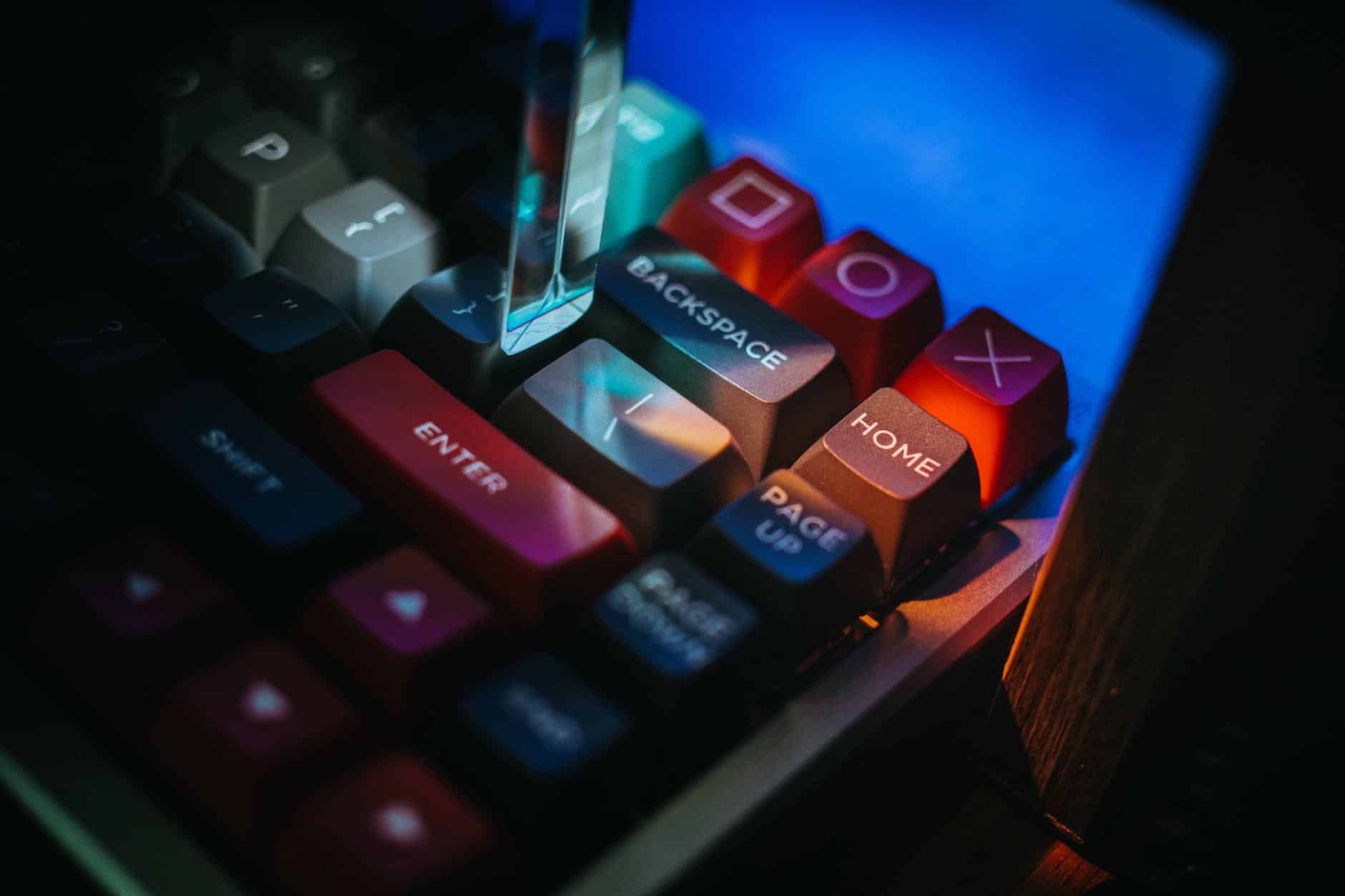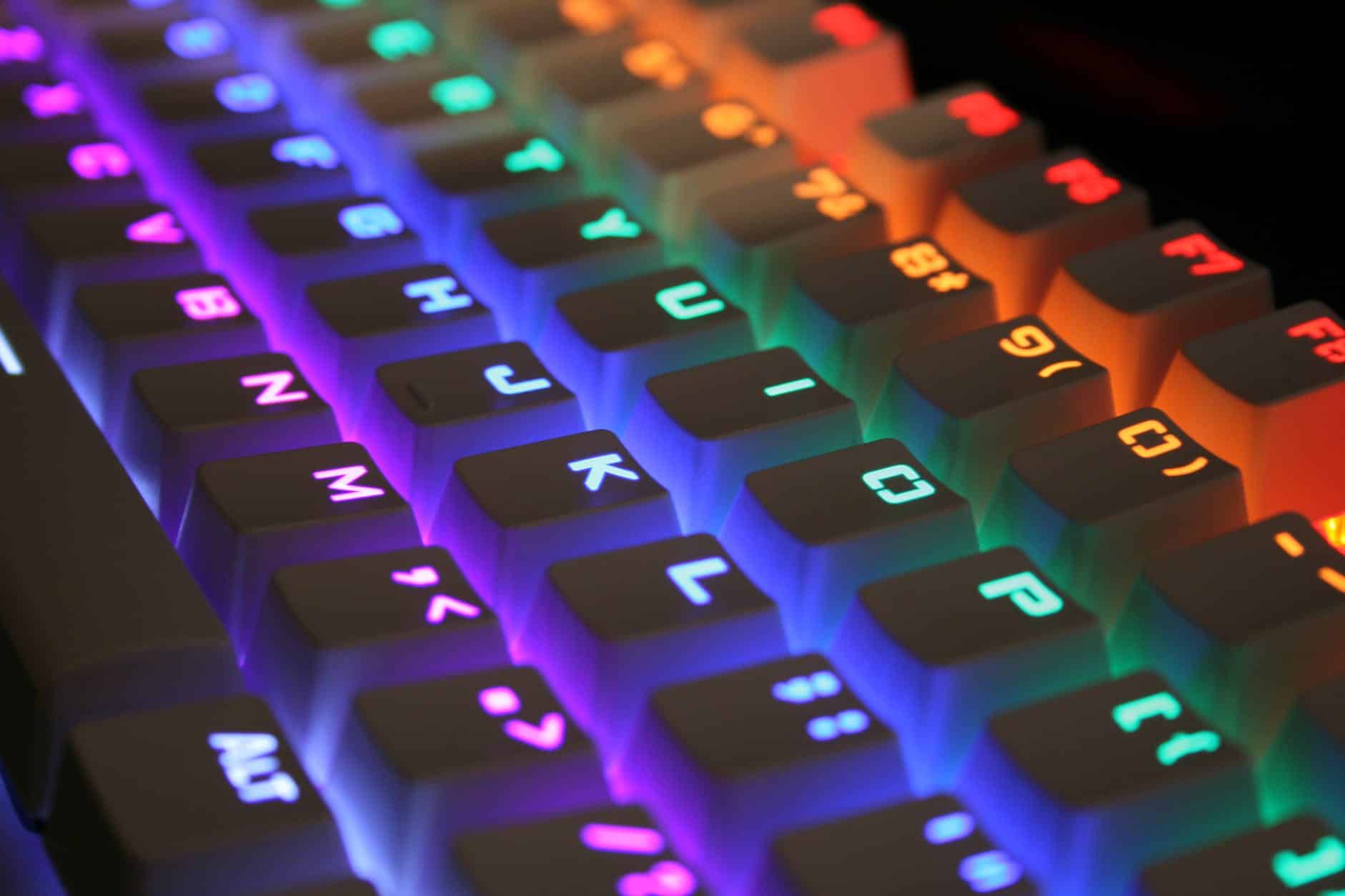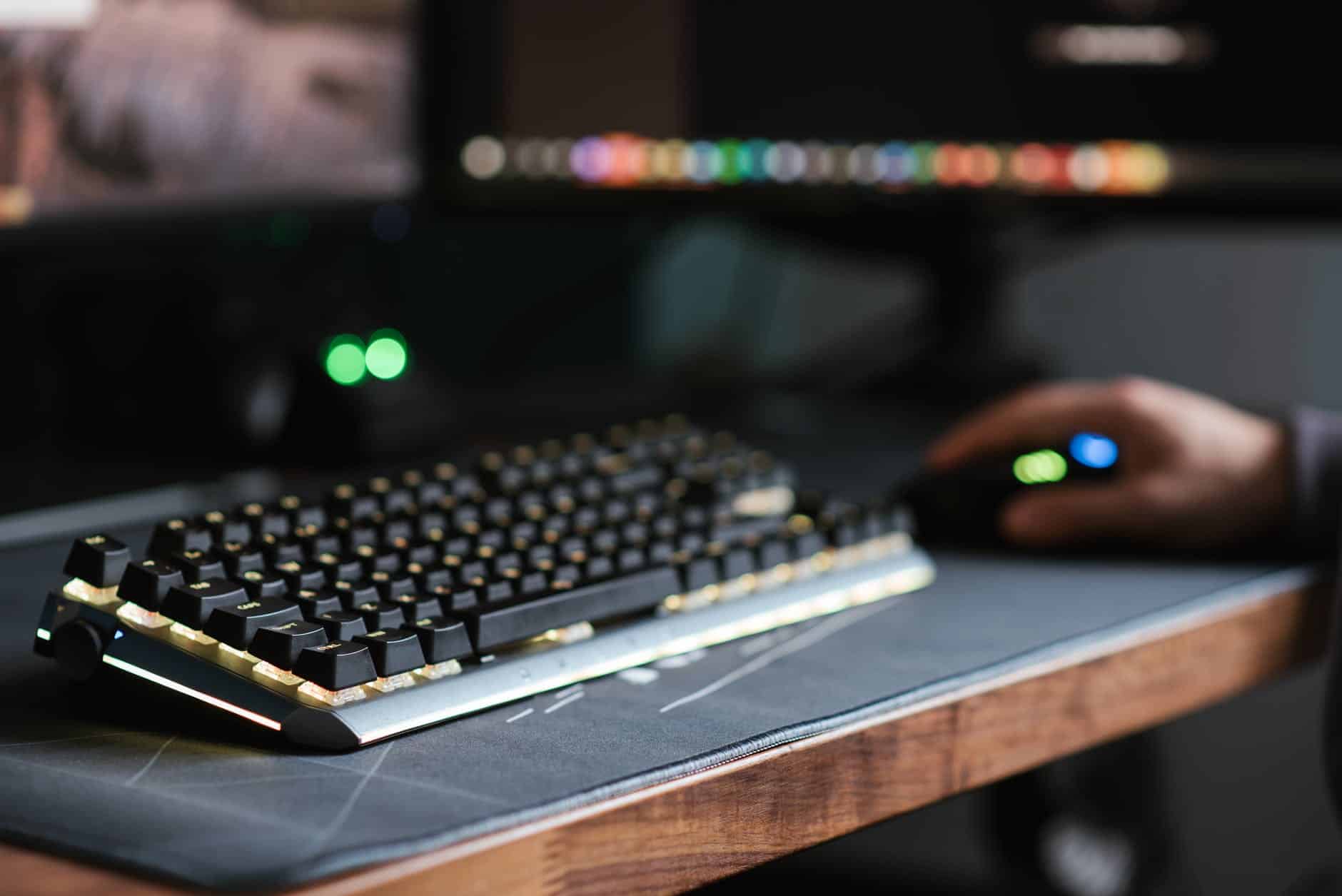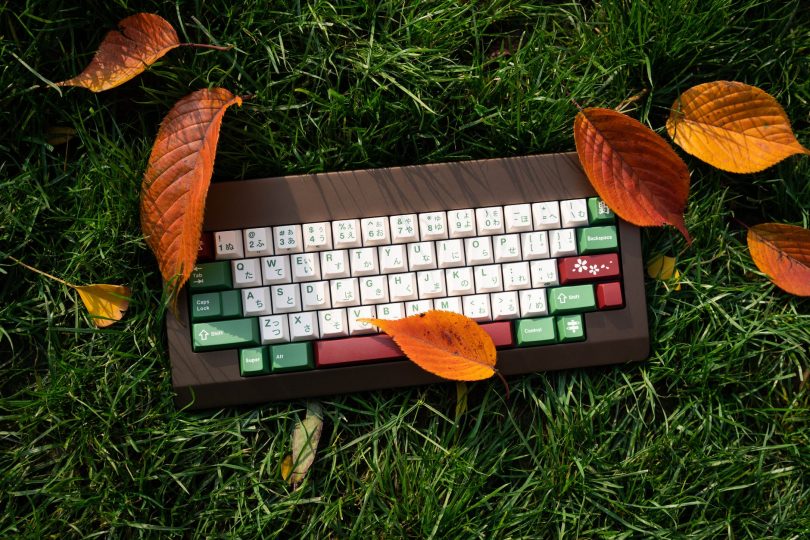There’s no question that custom keyboards are all the rage these days. This is likely because it is a very fulfilling activity that can be done relatively cheaply and without too much hassle. From mechanical keyboards to custom keycap sets, people are taking their typing experience to a whole new level. If you’re interested in starting your keyboard-making hobby, this guide is for you. In it, we’ll cover everything from what tools and materials you’ll need to how to put together your very first custom keyboard.
If you want to be a pro custom keyboard builder, keep reading for some helpful tips!

What Makes Mechanical Keyboards Different?
Custom mechanical keyboards are designed to provide the user with a unique typing experience. These keyboards are made from high-quality materials and feature specialized key switches that offer a variety of benefits over traditional keyboard designs.
Some of the primary features of custom mechanical keyboards include:
High-Quality Materials: Custom mechanical keyboards are typically made from high-quality materials that offer durability and a premium typing experience. The custom keyboard builder can choose materials according to their budget and enjoy the best tactical typing feel.
Specialized Key Switches: These keyboards feature specialized key switches that offer a variety of benefits, including a better typing feel, improved accuracy, and increased durability. Say the custom keyboard builder doesn’t like their existing key switches and needs something more advanced. They can experiment with different custom keyboard cases, keys, and switches to build a product that stands out.
Customizable: Many custom mechanical keyboards can be customized to suit the user’s individual preferences. A custom keyboard builder can be a gamer, writer, designer, or anyone who needs better tactical control. Since you build custom keyboard cases from scratch, you can easily customize them.
Unique Designs: Custom mechanical keyboards often feature unique designs that set them apart from traditional keyboard designs. From using RGB lights to noise-proof keycaps, a custom keyboard builder can do anything to make the final product stand out.
If you’re looking for a keyboard that offers a unique typing experience, become a custom keyboard builder, and you’re good to go.
Things You Need to Become a Custom Keyboard Builder
Building your mechanical keyboard can be a good experience. But before you get started as a pro custom keyboard builder, there are a few things you’ll need. Let’s now go over what you need to build custom mechanical keyboards, from the essential parts to the optional extras.
- First and foremost, you’ll need a PCB (printed circuit board). This is the brain of your keyboard, and it’s what lets you program which keys do what. You can buy PCBs pre-made, or you can design and etch your own. If you’re feeling ambitious as a custom keyboard builder, you can even make your PCB from scratch!
- Next up is the case. This is what houses your PCB and keys, and it comes in a variety of materials, from wood to aluminum. You can buy pre-made custom keyboard cases or design one yourself once you’re an experienced custom keyboard builder.
- Then you’ll need some keys! Mechanical keyboard keys come in various sizes, shapes, and colors. You can buy keysets that include all the keys you need, or you can pick and choose individual keys that you like.
- And last but not least, you’ll need a keycap puller. This handy tool lets you remove and replace keycaps without damaging them.
These are the essentials for building a mechanical keyboard. With these parts, you can create a keyboard that’s unique to you. Also, if you want to go above and beyond the basics, there are a few extras you can add to your keyboard.
You can add LED backlighting to your keys. This lighting makes your keyboard look cool and can also be helpful in low-light situations. You’ll need extra parts to add backlighting, like LEDs and a soldering iron.
You can also use a custom-designed top plate. This adds rigidity to your keyboard and can make it look even more unique. Designing and etching a top plate is an advanced project, but it’s doable if you’re a passionate custom keyboard builder.

A Detailed Guide to Build Custom Keyboard Cases
Assuming you’ve already gathered the necessary parts for your custom build, the next step is to put everything together. This process will vary depending on the keyboard you’re making, but here are the basics of becoming a custom keyboard builder:
- If you’re starting with a pre-made keyboard case, the first thing you’ll need to do is solder all of the switches to the PCB. This can be tricky, so be patient and take your time.
- Once all the switches are in place, you’ll need to add the keycaps. Again, depending on the type of keyboard you’re making, there are different ways to do this.
- For most mechanical keyboards, the keycaps simply snap on to the switches, while some require extra effort.
- Now it’s time to add the stabilizers. These are what help keep the keys from wobbling when you press them.
- Once the stabilizers are in place, you can add the PCB to the case and screw everything in.
- The last step is to connect your keyboard to your computer and start typing!
How Much Does It Cost to Make a Custom Keyboard?
It depends on the number of keys, materials, and other factors. For example, a custom keyboard with 104 keys made of aluminum and brass would cost more than one made of plastic.
Generally speaking, the cost of a custom mechanical keyboard ranges from $60 to $200+. However, many factors can affect the final price, such as the type of key switches used, materials used for construction, and extra features like backlighting or built-in USB ports.
For example, a high-end switch like the Novelkeys X Kailh Box Navies can cost around $1 per switch. Add to that the price of keycaps (which can range from $25 to $200), a case, and other components, and you’re looking at a total cost of around $250 to build a high-end custom mechanical keyboard.
Of course, you can also go with cheaper switches and materials to bring the total cost down, but those are just some estimates for building a higher-end custom keyboard.

Can You Sell Custom Keyboards?
There’s no doubt that custom keyboards are becoming more popular and you have several options to monetize this hobby. One option is to create an online store where you can sell custom-designed keyboards. This can help you reach a global audience and generate some decent income, but it requires some upfront investment in creating the website and stocking the products. Another possibility is selling custom keyboards through e-commerce platforms such as Etsy or eBay.
If you’re thinking about turning your custom keyboard hobby into a side business, you should keep a few things in mind.
- First, research the competition and ensure a market for your product.
- Second, consider the production costs and transportation logistics involved in selling physical goods.
- And finally, be prepared to put in some hard work to promote your business and stand out from the competition.
With careful planning and execution, you can be an expert custom keyboard builder and earn from this exciting hobby.
Wrap Up
Making custom mechanical keyboards is a surprisingly rewarding hobby. Not only do you end up with a one-of-a-kind product, but the process of putting it together is also quite satisfying. Of course, it’s not a hobby for everyone. It requires a fair amount of patience and attention to detail. But for those willing to put in the work, the rewards can be well worth it.
The first step in making a custom mechanical keyboard is to choose the right components. This includes choosing the right switches, keycaps, and custom keyboard cases. There are dozens of options to choose from, so it’s important to research and figure out which ones will suit you the best.
Once you’ve gathered all the necessary components, it’s time to put them together. This process can be fairly simple or extremely complicated, depending on how much customization you want to do.
But either way, the result will be a unique product you can enjoy for years to come. Good luck with this journey!
If you’re looking for more challenging hobbies that require a lot of skill and patience, check out the best golf has to offer!







